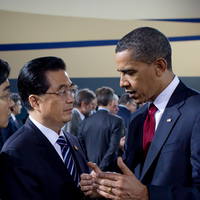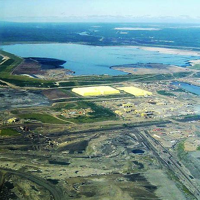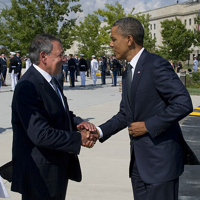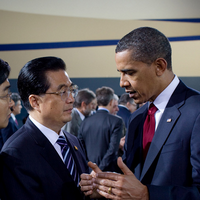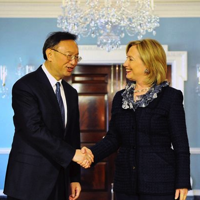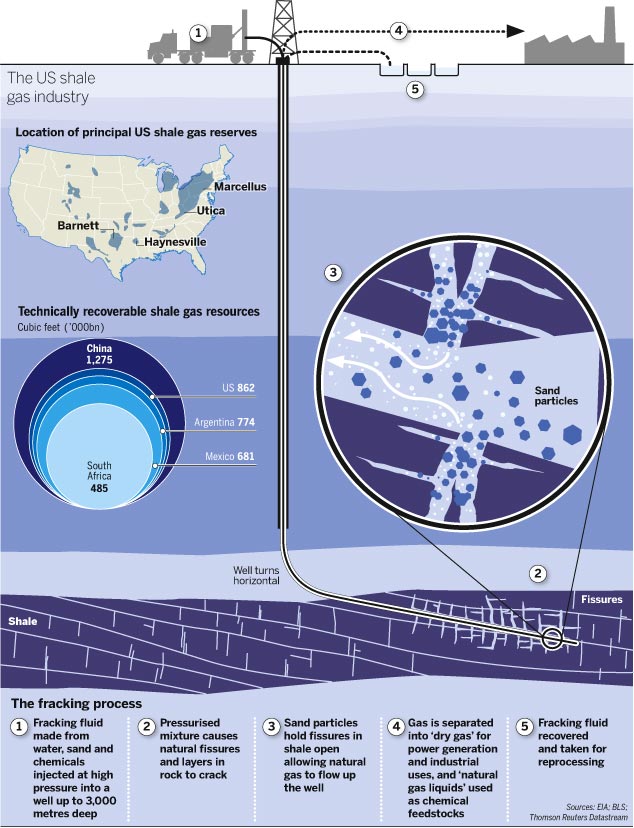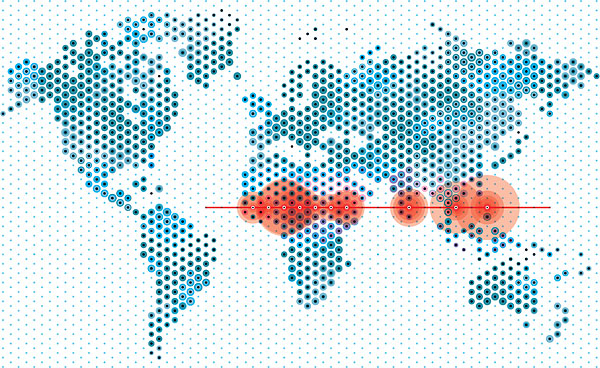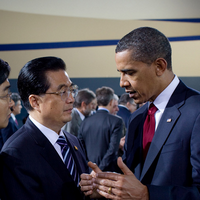
Now let me first say that I hunger for serious competition to Obama. If he gets back in, I want it to be a tough fight because, otherwise, his first-term arrogance will return unabated.
Let me also say that, as a rule, I think second terms are disasters. I have always favored a single six versus 2x4=8. I haven't lived through a second term yet that I wouldn't have traded in for the 2nd election competition. I just see scandals and drift and lots of lesser talent creeping in for no good effect.
So I want Perry to be real, because Romney ain't doing it for anybody except Peggy Noonan. And while I respect her considerable political instincts, I remain unsold (even though his campaign book cited me very favorably), primarily because I'm unsure he can win and - again - I want a real election and not some disappointing recrowning for a weak first term. If Obama is to win, I want him to earn it this time rather than have it somewhat handed to him by a weak opponent.
And so far, Perry is looking like an un-self-aware Romney. Romney may flip a bit to win the nomination, but he at least knows who he is. Perry is for HPV vaccination so long as his friend says so, but then the religious right get on him and he flips like a pancake for no more reason, it seems, than his initial decision.
Now, he's selling the Texas miracle like H. Ross Perot sold his buffalo-tinged, I-made-my-own-fortune story, except Perot and EDS got fat mostly through gov contracts and Perry's jobs miracle seems similarly fueled:
Texas Gov. Rick Perry has leapfrogged to the top tier of Republican presidential candidates largely on the strength of one compelling fact: During more than a decade as governor, his state created more than 1 million jobs, while the nation as a whole lost 1.4 million jobs.
Perry says the “Texas miracle” rests on conservative pillars that he would bring to the White House: minimal regulation and government, low taxes and a determination to limit the reach of Uncle Sam.
What he does not say is that much of that job growth has come because of government, not in spite of it.
With a young and fast-growing population, a large and expanding military presence and an influx of federal stimulus money, the number of government jobs in Texas has grown at more than double the rate of private-sector employment during Perry’s tenure.
This guy needs to figure out if he's real or just enough of a snow job to sell in Texas. If he is real (the other numbers are undeniably un-shabby), then he needs to start acting real, meaning acknowledging truths and acknowledging that what goes on in Texas is indicative of just about nothing in this country (Anybody else getting a one-fifth increase in gov jobs? Because those can go away too.).
So yeah, make your sale on your record, but make it honestly and show me some realistic translation to the real world known as the US outside of Texas. Indiana, for example, has a serious governor with a serious record and a serious capacity for telling the truth - Mitch Daniels. I don't like everything he does, but at least our finances aren't a disaster amidst all the ongoing difficulty, and that counts plenty.
Perry is coming off, so far, too slick and too political. I am not sensing the "real deal" dynamics in his presentation to date. Some of that may be how the press is working him over, the usual rumor mills from enemies, etc., but the guy needs to get a grip before he gets himself defined down dramatically. Maybe that's inevitable and there ain't no there there (all hat,no cattle, in TX terms), but mebbe it ain't.
It just doesn't feel like it's working so far, because I smell a Perot, and I don't want any cartoon character running for POTUS.
 Monday, January 16, 2012 at 11:05AM
Monday, January 16, 2012 at 11:05AM Globalization's historical expansion from Europe to North America to Asia has featured a familiar dynamic: The last region "in" becomes the integrator of note for the next region "up." Europe was the primary investor, customer and integrator for the U.S. economy in its rise during the 19th and 20th centuries, and America subsequently "paid it forward" with East Asia in the decades following World War II. Recently, it has been Asia's turn, primarily through China, to pay it forward once again with Africa, arguably the hottest integration zone in the global economy today.

 Africa,
Africa,  China,
China,  Obama Administration,
Obama Administration,  US,
US,  US foreign policy | in
US foreign policy | in  WPR Column |
WPR Column |  Email Article |
Email Article |  Permalink |
Permalink |  Print Article
Print Article 








